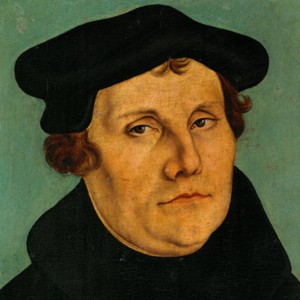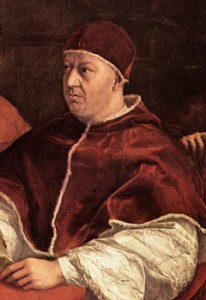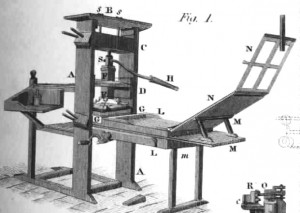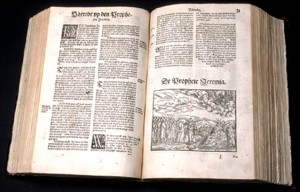Martin Luther was the great mind behind the start of the protestant reformation, even if he did not want the position. Luther’s time in the church (that being the Catholic church) was wrought with depression, abuse, and constant questioning of the church’s motives that all contributed to his separation from and attack against the Catholic church.
The hypocrisy of the Catholic church during the 1500s is a main factor in Luther’s reason for speaking out against the church. Pope Leo X was a corrupt man that used the church money to feast and do everything that was against the beliefs of the Catholic Church. The most widespread and effective corruption of Pope Leo was the use of indulgences, which allowed people to buy their way into heaven. This was a large revenue maker for the church and it was a big trigger in the writing of Luther’s 95 Theses. The Theses were written and nailed to a church door by Luther and they explained in detail the transgressions of the Catholic church.
Luther’s 95 Theses completely changed the way that Europe viewed the Catholic church, and it is all due to the Gutenberg printing press. While Gutenberg’s press was not the first printing press invented it did contain movable type. That movable type was the key to quick printing that allowed for the 95 Theses to be spread across Europe so quickly that the Catholic church could not stop it. Everyone knew who Luther was and they read all of his works (as he produced them), which created a widespread movement against the church. This movement soon moved toward a social revolution that Luther was against.
It is somewhat surprising that Martin Luther was against the social revolution that followed his public separation from the church. People, after reading Luther’s Theses and other works, ransacked churches and went to massacre the clergy. Luther was outright and harsh with his words against the rebelling people calling them to be righteous and leave the senseless fighting alone. Luther’s move against the church, verbally attacking the Catholic church for its hypocrisy, led to a larger movement across Europe that is known as The Reformation.





Leave a response